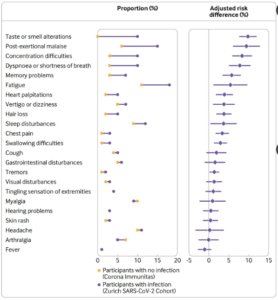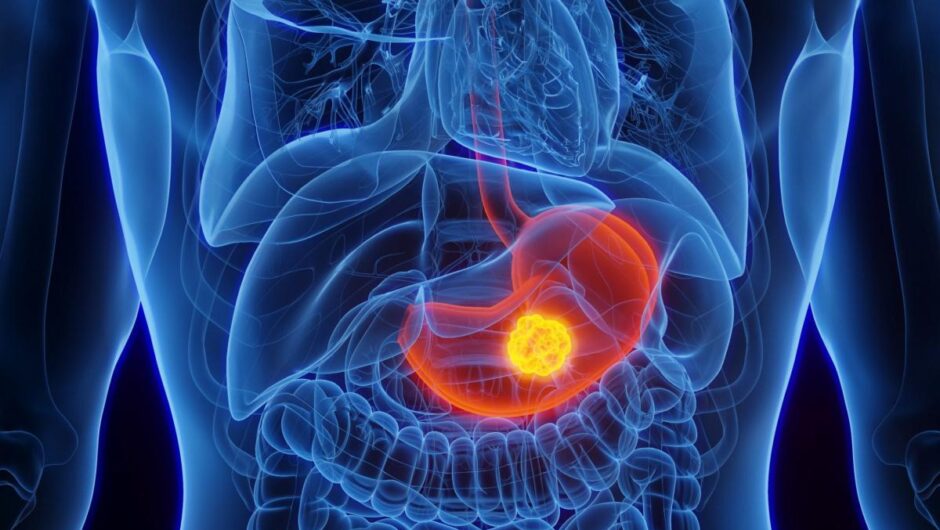 Long COVID refers to a condition where individuals experience persistent symptoms or new symptoms that last beyond the acute phase of COVID-19 infection. These symptoms can persist for weeks or months and can vary widely among individuals. Some common long COVID symptoms reported by individuals include fatigue, shortness of breath, cognitive difficulties (sometimes referred to as “brain fog”), joint pain, and chest pain.
Long COVID refers to a condition where individuals experience persistent symptoms or new symptoms that last beyond the acute phase of COVID-19 infection. These symptoms can persist for weeks or months and can vary widely among individuals. Some common long COVID symptoms reported by individuals include fatigue, shortness of breath, cognitive difficulties (sometimes referred to as “brain fog”), joint pain, and chest pain.
Long Covid Symptoms and duration
Long COVID symptoms can vary widely among individuals and may affect different organ systems in the body. Some common symptoms reported by individuals with long COVID include:
- Fatigue: Persistent and overwhelming tiredness.
- Shortness of breath: Difficulty breathing or a feeling of breathlessness.
- Cognitive difficulties: Problems with concentration, memory, or “brain fog.”
- Joint and muscle pain: Aches and pains in the joints and muscles.
- Chest pain: Discomfort or pain in the chest area.
- Palpitations: Awareness of the heartbeat or irregular heart rhythms.
- Headaches: Recurrent or persistent headaches.
- Sleep disturbances: Insomnia, trouble falling asleep, or poor sleep quality.
- Anxiety and depression: Feelings of anxiety, depression, or mood changes.
- Digestive issues: Nausea, vomiting, diarrhea, or abdominal pain.
The duration of long COVID can also vary. Some individuals may experience symptoms for a few weeks, while others may have symptoms that persist for several months. It’s important to note that research on long COVID is ongoing, and the understanding of the condition continues to evolve.
Recent Update on Long Covid developments 2023
In a 2-year follow up of more than 1,100 people who had Covid it was found that when compared with the unvaccinated vs in excess of 600 controls that 18% were affected with Long Covid. The study in the BMJ looked at the range of symptoms and their duration.
Do Vaccines help with long Covid?
Long COVID, also known as post-acute sequelae of SARS-CoV-2 infection (PASC) or post-acute COVID-19 syndrome, refers to a condition where individuals experience persistent symptoms or develop new symptoms that last beyond the acute phase of a COVID-19 infection.
Research is ongoing regarding vaccination and long COVID symptoms. However, vaccination against COVID-19 is generally recommended as a preventive measure to reduce the risk of severe illness, hospitalisation, and long-term complications associated with COVID-19.
Some studies suggest that COVID-19 vaccination may help reduce the risk and severity of long COVID symptoms and it has been shown to be effective in preventing severe illness.
Cardiff University has been awarded funding to research two aspects of Long Covid.



